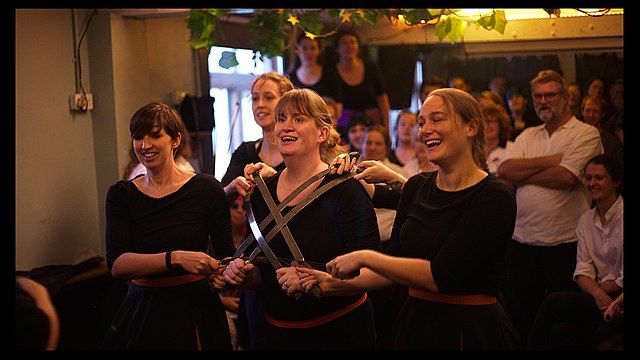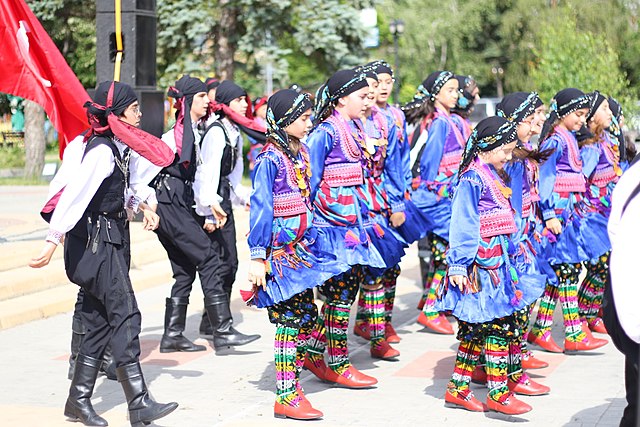Tinikling is a traditional Philippine folk dance which originated prior to Spanish colonialism in the area. The dance involves at least two people beating, tapping, and sliding bamboo poles on the ground and against each other in coordination with one or more dancers who step over and in between the poles in a dance. It is traditionally danced to rondalla music, a sort of serenade played by an ensemble of stringed instruments which originated in Spain during the Middle Ages. The locomotor movements used in this dance are hopping, jumping, and turning.
A performance of Tinikling by the Philippine Cultural Dancers group
The Buff-banded rail (Gallirallus philippensis), one of the birds locally known in the Philippines as tikling, which were the inspiration for the movements of the dance
A similar dance to tinikling done by the Kayan in upper mahakam, central Borneo. The photo was taken around 1898 and 1900 A.D.
A folk dance is a dance that reflects the life of the people of a certain country or region. Not all ethnic dances are folk dances. For example, ritual dances or dances of ritual origin are not considered to be folk dances. Ritual dances are usually called "religious dances" because of their purpose.
Traditional Valencian dances
Rapper Sword Dancers - Sheffield Steel
Folk Dancing at Jack in the Green May Day festival in Hastings, UK.
Turkey folk dance







